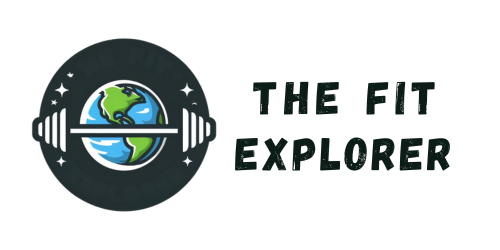Eating Healthy At High Altitude Destinations
If you’re embarking on an adventure at a high-altitude destination, you don’t only need to worry about motion sickness or the reduced oxygen supply – you also need to get your diet right!
Irrespective of whether you’re scaling mountain peaks or casually going for a retreat at a picturesque plateau, eating healthy is the key to staying energized and keeping altitude-related sicknesses at bay.
This is because your digestive system’s ability to process food is altered or reduced considerably.
However, fret not, as we will divulge some considerations and tips for eating healthy and staying energized while you conquer those peaks.
Stay Hydrated
High altitude has the tendency to dehydrate you, so it’s essential to ramp up your water consumption.
Aim for at least 3 liters of water, and if you’re engaged in physically strenuous activities, which you most likely will, like hiking, biking, and mountaineering, add a liter or two to your average consumption at least.
Complex Carbs
The cortisol, adrenaline, and noradrenaline levels are increased at high altitudes. This leads to increased use of carbohydrates, so your body needs it in sufficient quantity to stay fueled.
Skipping meals or being in a calorie deficit at high altitudes is not recommended, especially if you’re not used to it.
Carbohydrates are also the body’s preferred energy source at high altitudes. Researchers say over 60 percent of your calories should be from carbohydrates.
Complex carbs from sweet potatoes, oats, brown rice, beans, quinoa, lentils, etc., offer substantial energy to keep you fueled without putting additional strain on your gut.
Iron-Rich Foods
Iron is important in helping transport oxygen via blood throughout our body. Increased iron intake helps with acclimatizing to high altitudes quickly.
Try to add more spinach, lentils, leafy greens, fish, lean meats, poultry, and other iron-rich foods to your diet.
You may also consider adding iron supplements to your diet a week or two before planning your travel to high altitudes to fill any gaps if you’re already iron deficient.
High-Antioxidant Foods
Your body goes through oxidative stress at high altitudes, and a healthy diet can help combat it optimally.
This is why adding foods rich in antioxidants, such as berries, mandarins, oranges, leafy greens, etc. is essential.
Potassium-Rich Foods
Potassium is vital to maintain the body’s nerve and muscle functions.
Having potassium-rich foods when traveling to high-altitude areas can improve energy levels and coordination and ensure a hassle-free experience from a health point-of-view.
You must have potassium-rich foods at high altitudes, such as spinach, bananas, potatoes, etc.
You might even want to pack a supplement if you’re unsure of being able to meet your body’s potassium requirements on your travel at high altitudes.
Garlic and Ginger
Adding these two ingredients to your food is also highly recommended, as garlic helps improve blood circulation, and ginger has anti-nausea properties.
As nausea is a common symptom felt by most people at high altitudes, adding ginger to your diet or having pickled ginger can also help.
Load Up On Fat
It’s usually advised to have high-fat foods at high altitudes to avoid unnatural weight loss and ensure you’ve enough energy to stay active throughout the day.
However, don’t load up on dirty fat, and do not go overboard with it.
Some preferred fat sources are chocolate, butter, ghee, olive oil, coconut oil, nut butter, nuts, etc.
Avoid Fried Foods
If you’re visiting the mountains for a vacation, it’s expected to be tempted to have a cheat day and consume fried foods.
But, it’s best to avoid fried foods at high altitudes as it can lead to digestive issues due to slowed metabolism and may make you feel sluggish and fatigued.
Final Takeaway
As a traveler, you’ll have to be extra careful with what you’re putting in your mouth because you don’t want to visit a doctor or hospital when you’re far away from home.
Watching your diet and eating healthy is even more important at high altitudes as your body is under stress.
Adding nutrient-dense foods, as mentioned above, staying hydrated, watching your salt intake, and avoiding junk food should ensure your body is fit and active for the adventures ahead!
